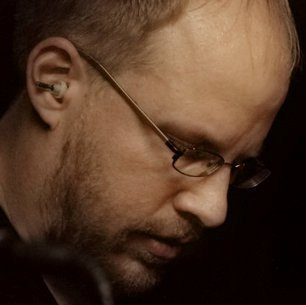There’s been a lot of discussion about the resurgence of fantasy over the past few years, with various theories advanced as to the reasons. Certainly the exceptional Lord of the Rings films in the early part of the century (hard to believe we’re already at the point where I can say that without people giving me quizzical looks!) were a big part of it; certainly the increasing movement of comic books into mainstream literature and film has helped; and even the conditions of uncertainty over the past decade–9/11, the Iraq war, the financial crisis–have driven some people to the escapism that fantasy can sometimes provide. (I’ve said more about that last point elsewhere.) But if you’re being honest, you have to deal with the elephant in the room (well, if the elephant had glasses and a lightning bolt scar, I guess)–the Harry Potter series has been about the biggest shot in the arm fantasy literature has had in twenty years, and a lot of authors owe a lot to J.K. Rowling for administering the shot. So it’s hardly surprising that people have decided to ride the wave for all it’s worth.
None of this is particularly new, of course. But I bring it up because I was in a bookstore (picking up Pat Rothfuss’s The Name of the Wind and Neil Gaiman’s The Graveyard Book (which I heard Neil read a portion of at a conference last year), by the way–and if you haven’t gotten either yet, what are you waiting for?), and near the children’s section I saw a table of Harry Potter books. A kid with dark hair on the cover, looking vaguely distressed as a mysterious fog swirls behind him…hardly unusual…until looking more closely I saw that it was actually a table of Charlie Bone books. Now I confess I haven’t read these books myself, and only vaguely remembered the name. What struck me was how easy it would be to pick up a book without paying close attention and buy it for a younger relative, only to discover you hadn’t gotten him or her the greatest series ever written (no, not really, but what else can you think of that can get kids waiting outside stores at midnight…for a book?) but rather an imitation. It reminded me a bit of picking up a martial arts movie starring Bruce Lee, only to find when you pop it in the DVD player that it actually stars Bruce Le, who is, er, not quite so good as the original. But look: Scholastic published both series, and you can hardly blame them for trying to get more of a good thing. I assumed I was judging too hastily.
Then I went to Amazon, and saw this: This story is clearly a ripoff of Harry Potter. It disturbs me the length people will go to make money when they can’t create their own ideas.
Ouch. And it doesn’t stop there; when even defenders of the books begin their arguments with things like “just because you think it’s a Harry Potter ripoff,” you know you’ve got a narrative on your hands. That said, there were a number of people who liked the Charlie Bone series…but even the strongest supporters usually pointed to how similar the books were to Harry Potter (Charlie Bone is apparently a boy who discovers his magical powers and gets sent to a private school for similar kinds of kids…er…), so one could read them while waiting for the next HP to come out. Apparently striking new ground wasn’t the intention here.
Now again, I haven’t read these books and thus can’t make a judgement on them, but it’s at least clear that Scholastic decided to market this brand for all it was worth. On the one hand this is hardly surprising, or even troubling–HP is an enormous money-maker, and it makes sense to tread that ground as long as you can, at least while the grass is still green. And it’s hard to avoid the imitation game in any case; I’ve talked previously about the idea that it’s hard (and perhaps not even desirable) to entirely avoid the fantasy cliche, and when you’re dealing with that elephant, it’s hard not to take him into account. In 1973 the famed literary critic Harold Bloom wrote about the anxiety of influence, the idea that poets could not avoid (and were thus always made anxious by) the shadow of their great predecessors, like Wordsworth’s charged and complex relationship with Milton. Thirty years later, it’s apparent we’re now dealing with the anxiety of He Who Shall Not Be Named (Or Forgotten)–how to write a fantasy book for children or young adults without including a magic school, or a plucky orphan, or a blend of mystery and magic and (of course) talking animals. And the result is this kind of confusion…Harry Potter 2.0, without the Harry Potter part.
Now I’m not at all sure what we can or should do about this problem. As an author, I’m always trying to balance the new with the familiar–building on the success of my predecessors without becoming them–but it’s impossible to avoid echoes of the giants who came before. Maybe there’s nothing wrong with something which executes a given formula well and successfully. But I do wish that we didn’t seem quite so transparent about the process, not quite so quick to churn out more of the same to appeal to the same group of readers. How about assuming instead that the fantastic is intended to broaden the mind–that when people get used to magic schools and half-giants and flying broomstick contests, they’re prepared for other departures from reality, even ones that don’t involve those specific, well-worn paths?
It seems like a reasonable conclusion. Then again, if someone picks up The Third Sign thinking it’s The Fellowship of the Ring, will I be that upset?
It depends. Will they buy the sequel? Maybe I could be convinced…maybe…
Greg

